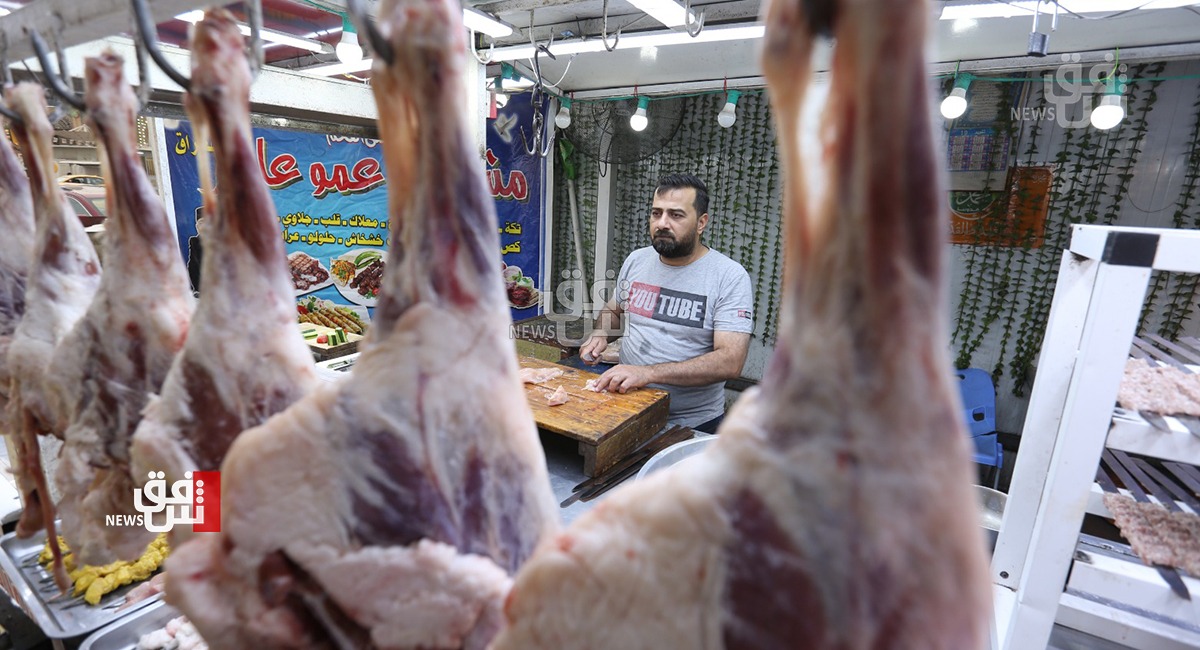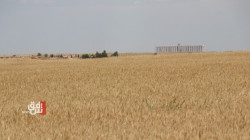Red meat prices peak, and the Iraqi Agriculture Ministry reveals why

Shafaq News / Red meat costs have recently soared in the Iraqi capital's marketplaces, joining white meat that became out of the poor households' reach.
The consequences of this rise have cast a shadow over the poor, who cannot purchase meat, while some have cut their purchases in half from what they had previously purchased.
Few government slaughterhouses
"The price of meat has risen by 1,000 dinars per kilogram for both sheep meat and beef, with sheep meat reaching 14,000 dinars and beef reaching 13,000 dinars, or even 15,000 dinars in some areas of Baghdad," the owner of the Abu Ahmed butchery shop in the Karrada area of central Baghdad told Shafaq News agency.
"Most of the meat we buy comes from squares dedicated to selling live sheep and cows, scattered throughout Baghdad. This livestock is slaughtered in the same place," he said, adding, "government slaughterhouses have shrunk and have been limited to only one in the Nahrawan area east of the capital, after it was previously distributed in several areas."
"As a result of this surge, the purchase of meat has become significantly lower than it was before," Abu Ahmed added, "only rich people can buy mear now; poor families dropped their purchases by half."
High feed prices
Mohammed Saleh, a livestock breeder, said the high price of meat is due to higher feed prices due to lifting government subsidies, "The Ministry of Agriculture has stopped subsidies for livestock breeders, so feed prices have doubled. However, the price increase was slight for meat compared to the prices of poultry and eggs in Iraq."
"The prices of flour bran have increased from 5,000 dinars to 15,000 dinars per bag weighing about 15 kilograms. The lack of feed has affected the fattening of livestock," he said.
The Ministry of Agriculture's fail
Citizens worry about the high meat prices, which are in addition to the high prices of white meat and eggs, claiming that the Ministry of Agriculture has failed to curb the rise, leaving the poor helpless.
"Prices have been rising for the past few months," Mustafa Mohammed told Shafaq News agency, "Many locals have refrained from purchasing meat due to its high prices as they are equal to white meat prices, which are similarly expensive."
"The Ministry of Agriculture has failed to restrict the growth in meat prices, whether red or white, and even crops," Mohammad said, adding, "The surge has continued since Eid al-Adha, and prices continue to rise without pause or stability."
Um Ahmed, a housewife, said that their purchases of red meat are no longer of priority, calling on regulators to intervene and prevent raising the prices as was done previously, "Many families started buying imported and frozen red meat due to its lower prices. However, imported meat cannot be identified, and the quality of the meat cannot be known."
The White paper
The Iraqi Ministry of Agriculture confirmed that it had suspended all feed support following the state's "white paper" policy.
"The ministry lifted subsidy of feed, whether maize, barley, and all poultry and livestock inputs," ministry spokesman Hamid al-Nayef told Shafaq News agency, "This is part of the state's white paper policy in terms of switching to a market economy and reducing dependence on the state."
"Cattle herders have begun to turn to local marketplaces to get feed, which is in a state of supply and demand that is frequently high," he added, "Feed prices in Iraq are reasonable compared to neighboring countries."
"Prices, especially food prices, have grown around the world since the COVID-19 pandemic, which seriously damaged the economy," al-Nayef said, "However, the Iraqi citizen does not accept this mentality and always demands the state's support."
According to experts, since the depreciation of the Iraqi dinar against the U.S. dollar last year, food costs, particularly agricultural commodities and poultry, have progressively risen, highlighting the "fragility of the Iraqi economy," which is undergoing numerous issues.
This price increase also included flour, the main and most essential element in the Iraqi food table.
